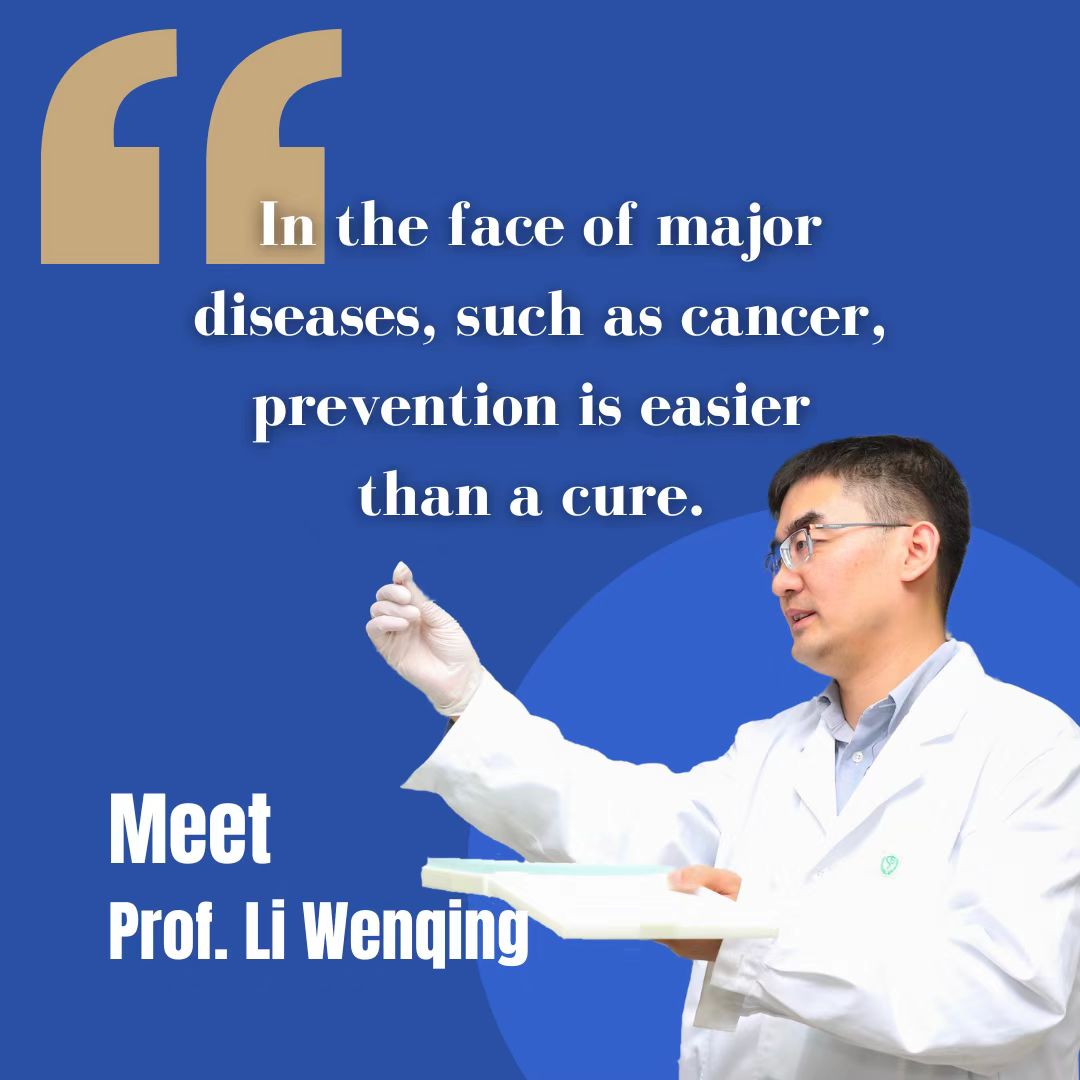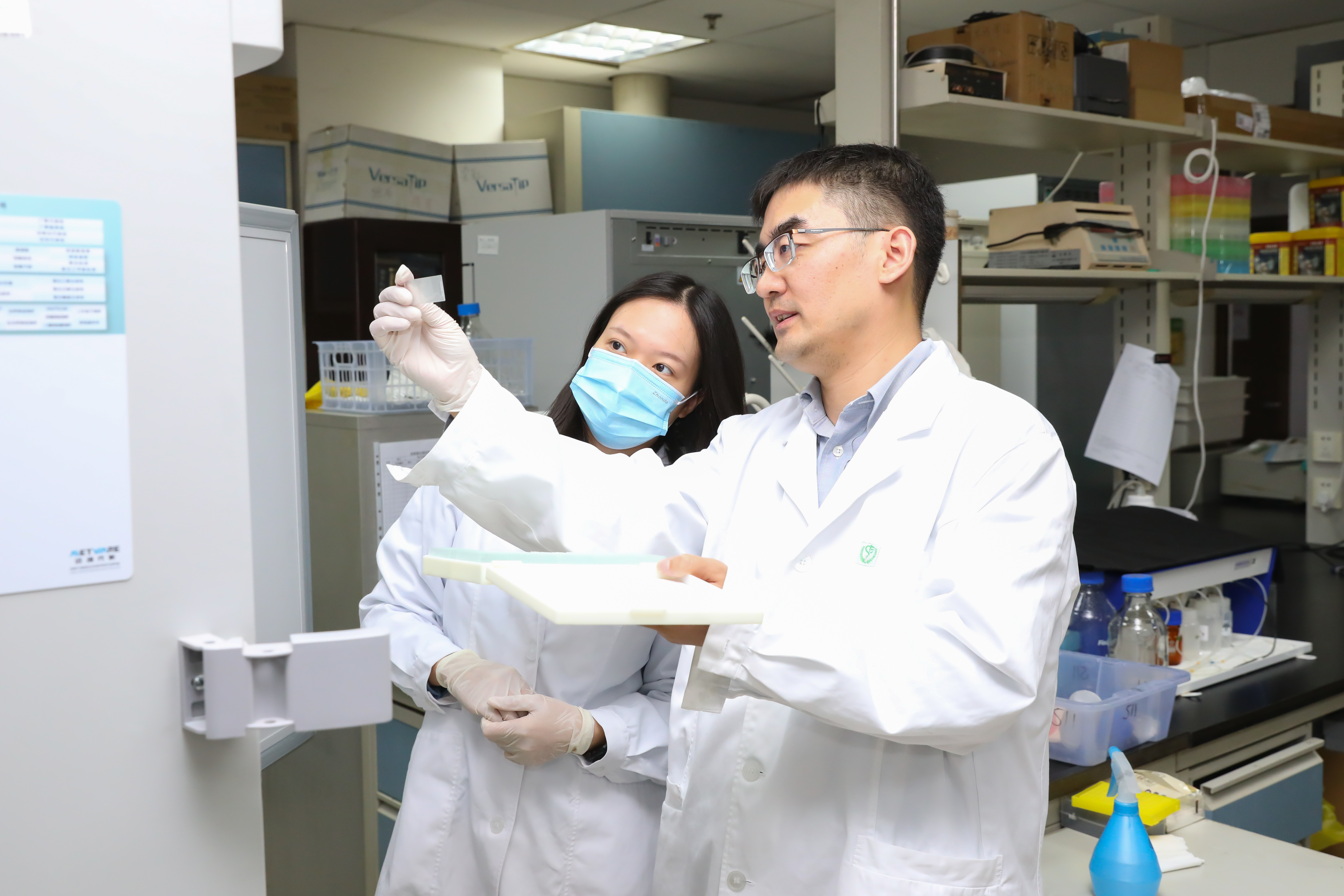Peking University, October 23, 2024: When Li Wenqing was studying for a doctorate degree at Peking University, he followed his mentor You Weicheng to Linqu County, Shandong Province, an area well-known for its high incidence rate of gastric cancer.
At the time, Linqu County was still an economically underdeveloped area. Li Wenqing and his team had to travel for 8 to 9 hours a day, walking through rugged village roads, carrying medical equipment to individuals homes, and conducting research and biological sampling at each location.
When recalling this memory, Li Wenqing said: "In my study and research experience, this memory is the most rewarding. These individuals have influenced my scientific research and career choices–not a certain person, but the entire group." Li Wenqing later followed his mentor to visit three patients who had received early gastric cancer diagnoses and resections as a result of his outreach. They and their families were very happy for the opportunity to express their gratitude to the team for saving their lives.
Li Wenqing was deeply touched by this feeling, which inspired him to put "helping people prevent major diseases such as cancer" at the forefront of his mission for future scientific research and work.
Embarking on the path of preventive medicine
Li Wenqing started on the path of preventive medicine and epidemiology, on the one hand influenced by his family, and on the other hand driven by his personal feelings and values. Li Wenqing's father and grandfather are both traditional Chinese medicine practitioners. The environment he was exposed to from childhood gave him an early understanding of the medical profession. In addition, the full support of his pro-education family, who encouraged him to continue his studies abroad without distraction, allowed Li Wenqing to continue working toward his career goals.
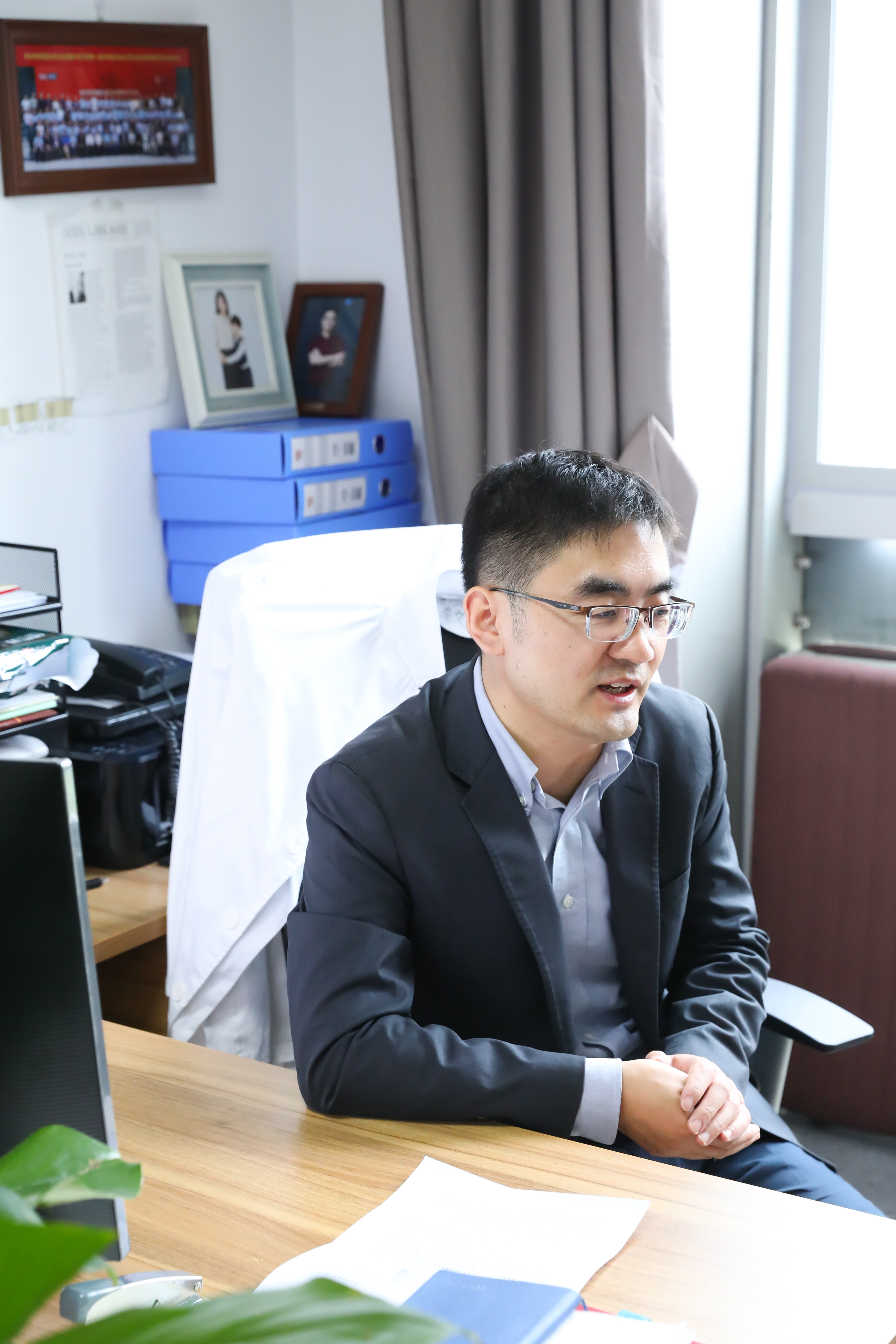
Li Wenqing has always been passionate about epidemiology and preventive medicine because he believes that in treatment, "prevention is easier than a cure." Therefore, after entering Shandong University, Li Wenqing majored in preventative medicine, studying hard and collaborating with his peers. By graduation, although he did not have a specific research direction, Li Wenqing was well-appreciated and respected by his class tutor.
With the recommendation of his tutor, Li Wenqing was introduced to Professor You Weicheng at Peking University’s Cancer Hospital. Driven by curiosity and with the guidance of his tutor, Li Wenqing came to Peking University and began his pivotal five-year doctoral study.
Studying at Peking University
Recalling his time on Professor You’s team and his experience at Peking University, Li Wenqing expresses his gratitude both to his mentor and the university. Li Wenqing asserts that Peking University provided him with many opportunities to communicate directly with influential, cutting-edge domestic and international brands and high-level research institutions alike, broadening his early international vision. Furthermore, many academicians associated with Peking University were involved in the training of students like him during the time. From thesis proposal to final defense, Li Wenqing had the opportunity to receive generous guidance from many experts.
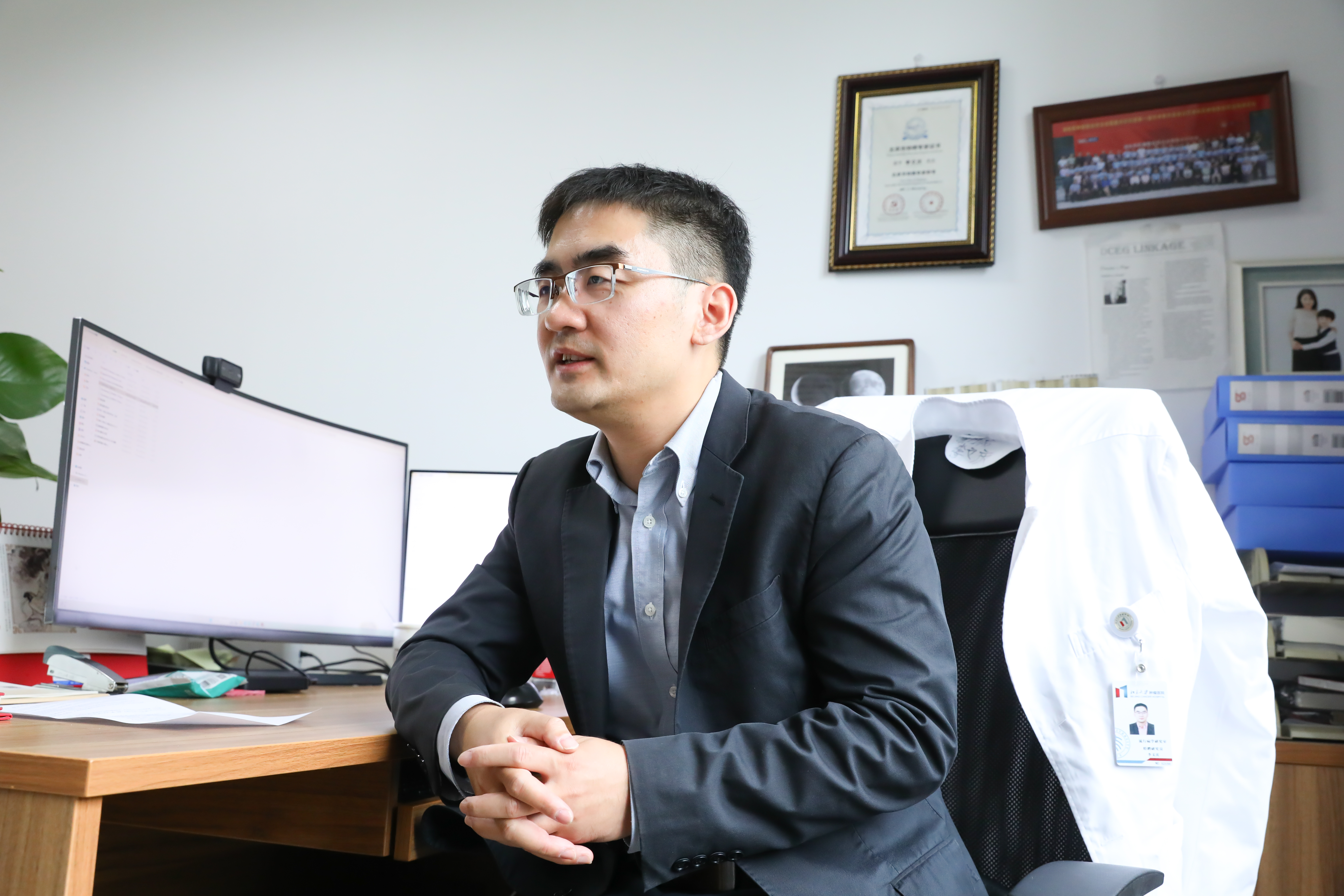
In addition, Li Wenqing also mentioned that because of his good English proficiency, his tutor gave him several opportunities to participate in international exchanges, supporting his future goal to study as a postdoctoral fellow in the United States. Before he departed for the States, Li Wenqing published 3 SCI journal articles, with his graduation thesis also winning the Outstanding Doctoral Dissertation of Peking University.
He recalled that it was difficult to write the first article because he was not familiar with scientific research paper specifications. Fortunately, his mentors taught him the writing methods step-by-step and helped him to revise his work sentence-by-sentence. Such research training laid a healthy foundation for Li Wenqing's subsequent study in the United States.
Further education and self exploration
After obtaining his doctorate, Li Wenqing hoped to further improve his scientific research thinking and literacy, entering Harvard University for his postdoctorate research. Although Harvard is top-of-the-line in scientific research, gastric cancer was not at the forefront of their research efforts at the time, so Li Wenqing decided to turn his focus toward the study of melanoma.
He said that it was not easy to make this choice, feeling that he should focus his efforts on a topic more useful to the Chinese people, and worrying that his melanoma research would not meet the needs of the country well. But after returning to China, he realized that the field he ultimately chose to follow was less important than the methodological training he acquired in the States. The experience and knowledge that Li Wenqing brought back was the key transferable knowledge that China needed at the time.
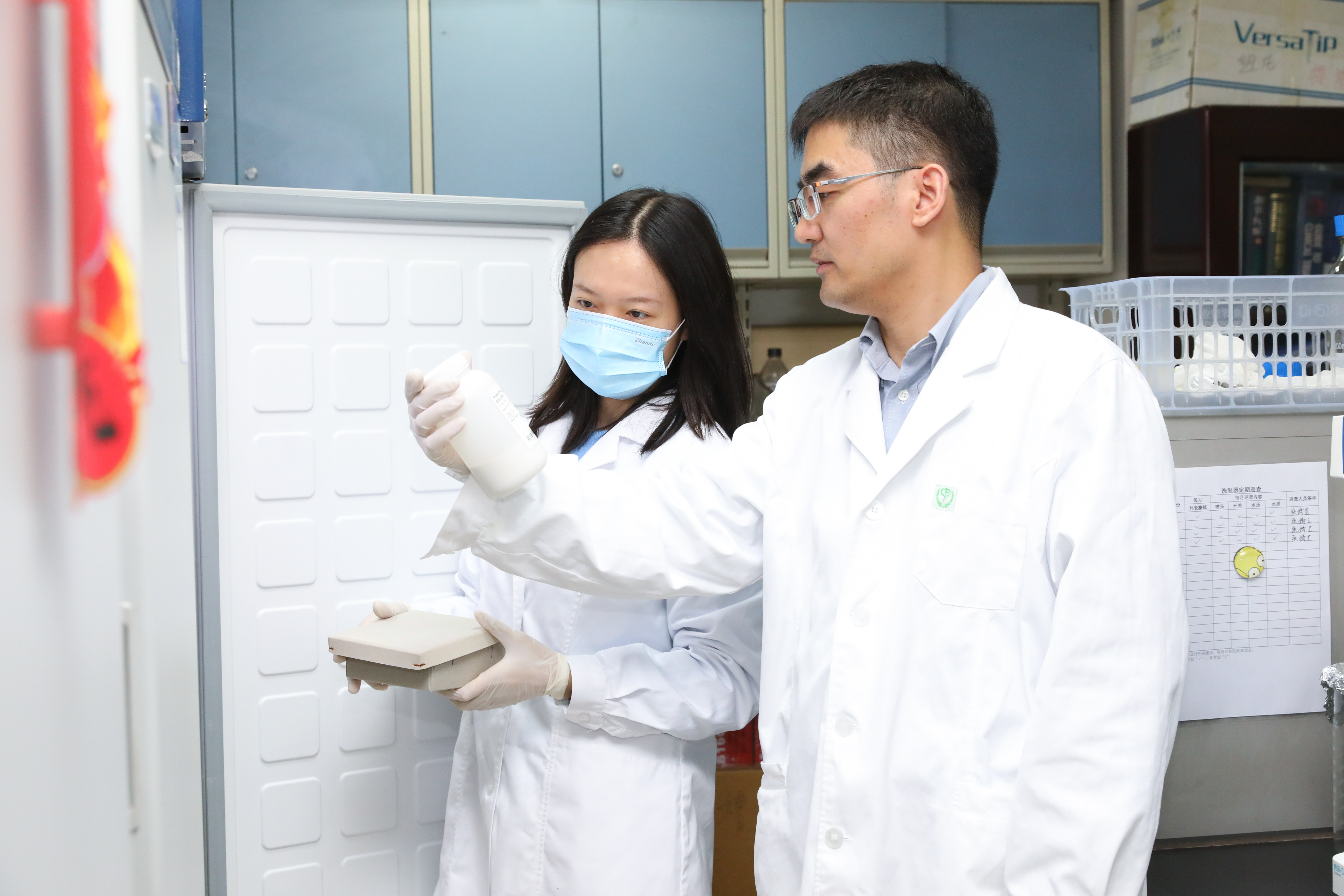
After returning to Peking University, Li Wenqing was able to teach this methodological expertise to his team and students, sharing the knowledge that could benefit future patients. While his research experience at Harvard was generally smooth, Li Wenqing did mention that compared to his previous doctoral stage, in research he needed to be more independent in academic writing and submission. At the start, he often ran into obstacles while he was still unfamiliar with the selection of foreign journals. But, he knew that "everything is difficult at the beginning", and fortunately, after adapting, Li Wenqing was able to publish 10 SCI journal articles in fewer than 2 years.
Embracing change and global perspective
Later, Li Wenqing unexpectedly came across the Tumor Epidemiology and Genetics Department of the National Cancer Institute (NCI) of the United States. Believing that this platform would enable him to further learn and study issues that were relevant to China's main disease states, he reached out to his network at Harvard University for a consultation of this idea. Then in 2012, he transferred to the NCI to begin his research in upper gastrointestinal tumors, skin carcinoma epidemiology, and molecular epidemiology.
At NCI, Li Wenqing was exposed to yet another major American institution and its core values. He mentioned that NCI has a strong global perspective, with research projects spanning multiple countries, including China, Africa, Latin America, and more. This international culture brings together scholars from all over the globe, which positively expanded Li Wenqing’s perspective and strongly influenced how he regards the world today. Furthermore, he recalled that because NCI researchers are represented by the government, he had access to global resources and enjoyed many opportunities to collaborate with diverse teams.
In order to participate in projects similar to or related to China, Li Wenqing got involved with research initiatives in Mongolia and other neighboring countries of China. Through these experiences, he gradually came to realize that China needed a stronger voice and greater impact in the field of international cancer prevention and treatment. Li Wenqing made it a career goal to contribute what he could to the strategy and innovation of global cancer prevention and treatment.
A natural choice
During his study abroad, Li Wenqing never changed his mind about returning to China in the end.
In 2014, Li Wenqing had the opportunity to work as a formal faculty member at Brown University. He could not turn down the prestigious opportunity. However, around the same time, he also applied for the Thousand Talents Plan (TTP) youth project in China, hoping to find a suitable opportunity to return to China in the next few years. In July 2017, after successfully joining the TTP youth project, Li Wenqing finally returned to China and resumed his work at Peking University Cancer Hospital.
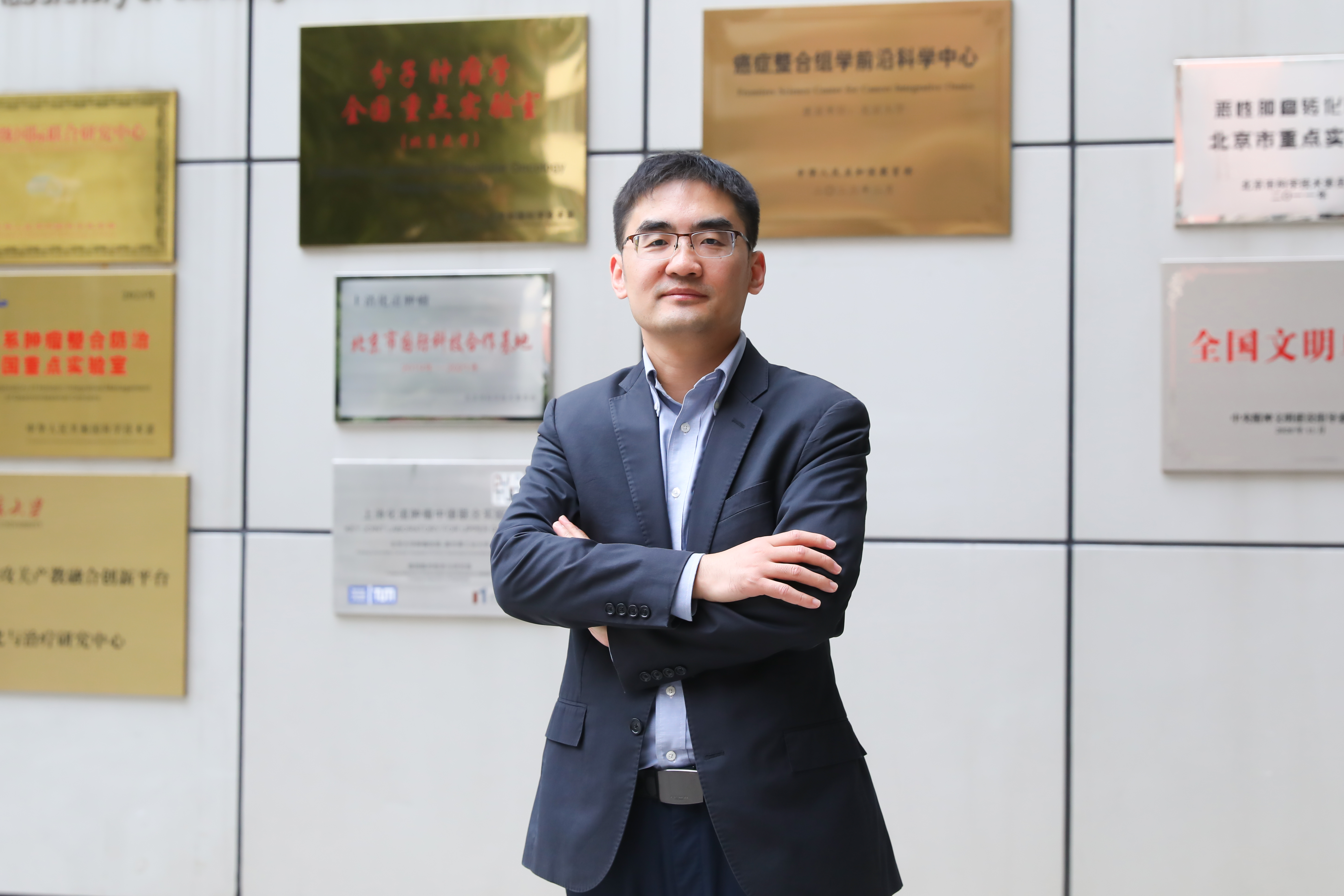
He pointed out that the choice to return to Peking University was "a natural one". After all, the starting point of his scientific research journey was at Peking University, where he was strongly influenced by his original mentor. Returning to the university, Li Wenqing felt a shift in the new generation of students that had established in his absence. The students of the new era were more individualistic and confronted a wider range of choices. In the process of guiding students, Li Wenqing plans to take a more down-to-earth, colloquial route. If he can provide any advice for students, he would encourage young students to seize opportunities, proactively experience what sparks their interests, and through exposure, more fully comprehend the current global political climate, ultimately choosing a career path that is most suitable for them individually.
Facing the future, leading the world
After returning to Peking University, Li Wenqing led a team that set up a clinical epidemiology research center, hoping to further expand the field of cancer prevention research in China. He wants to take part in spearheading Chinese contributions to human cancer prevention.
Speaking about future research plans, Li Wenqing said that "in the future, we should continue to consolidate the development of medical research, and hope to achieve prevention through personalized medicine and targeted therapy. Rather than adopting a 'one-size-fits-all' approach, we should strive to screen out and treat individuals who are at highest risk first, so that limited medical resources can be allocated efficiently to prevent and treat cancer from an early stage."
As he continues his work, Li Wenqing hopes to produce additional significant research results, enhance the voice and influence of Peking University/China in the field of cancer prevention, and help lead future global cancer prevention discourse and progress.
Interviewed by: Yang Yimeng, Megan Huang
Written by: Yang Yimeng
Edited by: Megan Huang
Photos by: Yan Linlin
